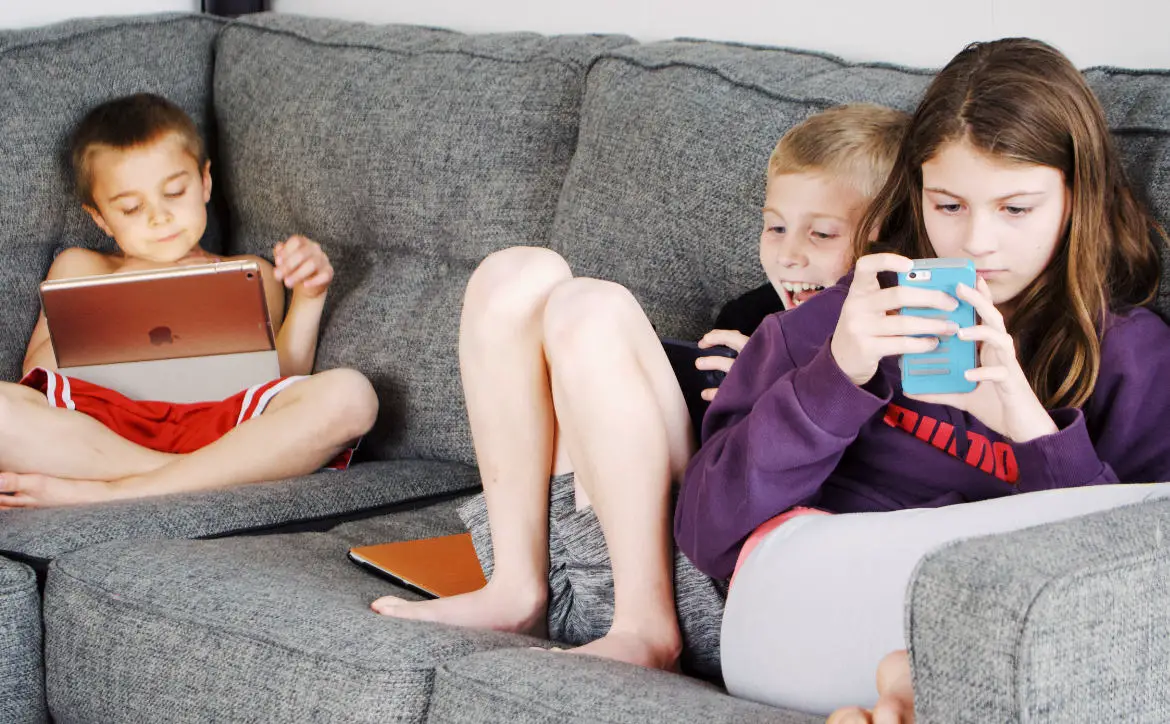In 2021, parents ranked increased screen time as one of three harmful effects of the COVID-19 pandemic. In fact, adolescents’ screen time more than doubled during the pandemic, from 3.8 hours per day in 2019 to 7.7 hours per day in 2020.
Estimated reading time: 4 minutes
50% of teens have admitted they “feel addicted” to their mobile devices, while 59% of their parents agree. 72% of teens feel the urge to check notifications or respond to messages immediately. Since the pandemic started, more than 60% of parents have said that social media use among teens has increased. With the rise in digital media use, seven in 10 children have accidentally accessed harmful content online.
In today’s world, nearly half of teens will experience some form of mental health disorder in their lifetime. Teens who use social media more than three hours per day are at a higher risk of experiencing mental health issues. Constant use of social media can lower one’s self-esteem, diminish one’s body image, and increase the feeling of isolation and loneliness.
One in six teens has experienced cyber-bullying in the form of name-calling, false rumors, unsolicited explicit messages, stalking, physical threats, or graphic images being shared without consent. 65% of young teens want their families to help and use parental controls.

Accidental exposure to adult content is common. These days children can be first exposed to adult content at the age of 11. 34% of internet users have experienced unwanted exposure to adult content through ads, misdirected links, or emails. Many teens who have seen adult content have been exposed unintentionally, while about half of teens encounter adult content at least one or two times per month.
Being exposed early can have long-term consequences, including increased odds of teen pregnancy, greater risk of depression, lower self-esteem and loneliness, the normalization of unsafe sexual behaviors, violence against women, and harmful racial stereotypes.
In 2020, one in seven between ages nine and 12 shared a nude photo of themselves, while one in three children have seen naked pictures of others that have been re-shared without consent. More than half of teens and young adults have sent or received a nude image. One-third of reported child sexual abuse material (CASM) was self-generated, a 77% increase in only one year. Due to the growth of accidental exposure to adult content, many parents are concerned for their child’s safety online.
Accidental exposure can occur in several ways; about 40% of children accidentally access online adult content by innocently entering simple search phrases or open-ended terms. Young boys are usually exposed to violent and sexual content while playing online games meant for adults. 43% of young children speak to strangers online (usually without supervision) and can end up receiving unsolicited messages.

However, parents can take action to protect their children from harmful online content. One of them is setting ground rules or establishing age-appropriate rules while helping your child understand why having the rules are essential. Some highly recommended rules include: don’t share personal information online, don’t friend anyone you don’t already know, and only discuss the game you are playing in a gaming chat.
Helping children develop good habits and skills will foster a healthy relationship with technology for the rest of their lives. This means showing kids how to report and block inappropriate content or behavior, creating a central device charging station, and establishing a digital curfew for the whole family. For parents, using smart filtering tools with broad protection instead of adjusting each app individually can be helpful.
Overall, it’s essential to talk to your children in an open, ongoing conversation about the role of technology in their lives. Always let your child know you’re always there to help them and remind them that they can ask you about anything, even if it’s an uncomfortable topic.
Almost one in five parents don’t bother with parental controls because they think their kids can easily bypass them. However, that isn’t always the case with newer parental control technology available.
The dangers of screen addiction can be avoided, but only when you take the initiative to protect your child’s eyes and mind.

How do you manage your kids’ screen time? How do you manage your own screen time? Is screen time management essential or not so much? Please share your thoughts on any of the social media pages listed below. You can also comment on our MeWe page by joining the MeWe social network.










